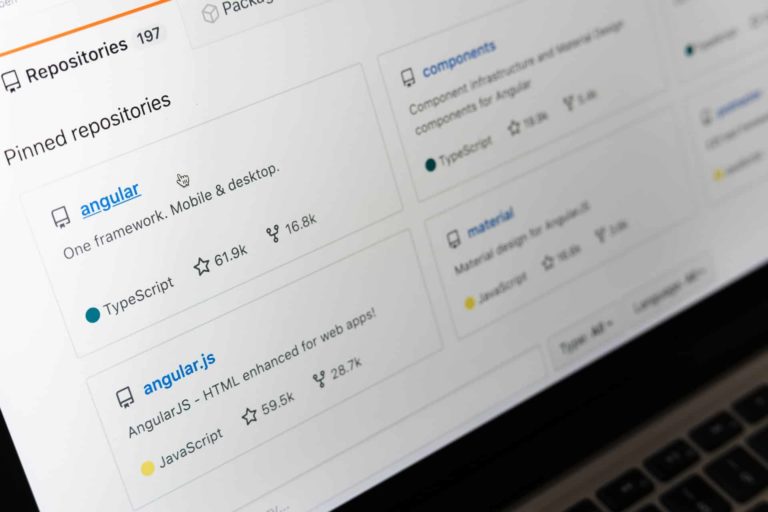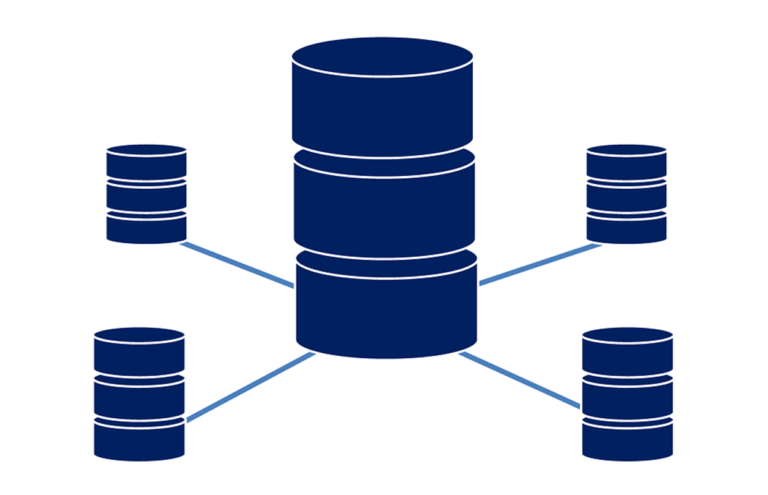How to Become a Software Developer (No degree needed)

Software is increasingly controlling industries around the world and the search for software developer talent continues to increase. So, if you are considering becoming one, then you might be making a wise decision.
You should note, however, that software development is not for everyone. Yes, it can pay well, but you need good analytical skills, a logical approach to solving problems, and a good grasp of numbers.
If you are sure that you have what it takes to become a competent software developer. Then, this guide is for you.
Why Software Development?
While the first obvious reason is the increasing demand for software developers around the world, you could also be one of those who like to do things for fun. Let’s face it, coding is fun and can be very rewarding, especially when you undertake a project out of sheer passion.
Still, as many industries use computers to optimize operations, others are disrupting them completely, also using computers. It is no surprise then, that demand for software developers is soaring. As corporations and venture capitalists boost their investments in the tech sector, in a bid to secure the future of their industries.
You can expect an average salary of $80,000, which is about £60,000 as a software developer. And it can get better, depending on what you do. Speaking of that, software development is a vast field, so your first step should be figuring out exactly the type of developer that you want to become. More on that later.
Software Developer vs Software Engineer
Most people use the terms software developer and software engineer interchangeably, but there is a slight difference between the two job descriptions. In simple terms, a software developer creates computer programs, while a software engineer applies engineering principles in creating software.
Although both share the same set of skills, a software engineer can handle larger and whole-system design projects, which usually call for the application of system development skills. For this reason, software engineers tend to be more advanced, older, and experienced. They will often hold project management positions in larger firms.
Both can hold a computer science or computer engineering degree, but again, the difference between the two labels depends on who you ask. Many firms in search of programming talent do not differentiate between the two. So, it might be in your best interest to keep that in mind, when job hunting.
How to Easily Become a Software Developer
Becoming a software developer is easy if you are ready to put in the time and work necessary. Keep in mind that the job requires a certain level of mental capacity, such as logical thinking and creativity. So, if you are sure that you have what it takes, then here is a step-by-step guide to becoming a software developer very easily.
Step 1: Decide on a Specialization
Your first step in becoming a software developer is to figure out the type of applications you would like to develop. To most outsiders, all software developers may seem the same, but that is not the reality.
Understand that some software developers spend decades working on maths problems, while others create websites, smartphone apps, financial analysis and trading systems, and even missiles and military-drone navigation systems.
You need to first search within yourself to discover what you would be comfortable working with because there are many career paths for a software developer. Here are some:
- Game development
- Cyber security
- Fintech
- IT consultant
- Web development
- Front-end engineer
- Back-end engineer
- Full-stack engineer
- Project management
- Multimedia programming
- Software testing
- Data science
- Artificial intelligence
- Software integration engineer
- Mobile apps development
- Database administration
- Embedded systems
- DevOps
- Technical writing
- Technical support
- No- and Low-code development
- Test engineer
- Technical recruitment
- Sales engineer
Step 2: Figure out the Skills You Need
Different software development jobs are best completed with specific tools. So, the skills that you need to learn will depend on what you want to do.
Here are a few ideas for example:
- Web development: JavaScript, HTML, CSS, PHP
- Front-end development: JavaScript, HTML, CSS, jQuery,
- Mobile development: Java, Objective-C
- Back-end development: PHP, Python, Perl, C, C++
- Data Science: Python, SQL, R
- Game design: C++, HTML5, DirectX, OpenGL
Step 3: Find & Read Relevant Books
Once you know what you want to do and what you need to know to do it, the next step is to get the needed education. The fastest path here is to get hold of good books on the subject and read them. But the only downside is that you do not get a certification for your newly acquired knowledge.
You can make it as a software developer without going through the traditional education system and getting a software developer or related degree. However, you may have to work harder.
There are many university dropouts and self-starters who have succeeded wildly as software developers. And the reason is that the market demand for software technology is very high. Research also suggests that it will continue this way for the next few decades.
Simply read a good book on the subject, and that is it. O’Reilly publishes good computer books and even offers access to some industry certifications to prove your worth.
Step 4: Mingle with Other Developers
Socializing with like-minded and even more experienced software developers can work wonders for you. And if you can get a mentor, then even better. There are hundreds of software-developer communities on the web. From Yahoo to Facebook groups, Twitter hashtags, and hacker forums. You will learn, advance your skills, and stay up to date by socializing with other programmers.
Step 5: Build Pet Projects
One of the best gifts you can give yourself as a software developer is to build a pet project. This could be anything that tickles your fancy. It should connect your passions, challenge your skills, and be something unique that no one else can give you.
Pet projects force you to get creative without worrying about what the boss or client might say. You are developing software on your terms, pushing your skills to the limits, and unleashing your creativity for your satisfaction. Linux, for instance, started as a pet project for Linus Torvalds. Now, look how it powers most of the Internet.
Step 6: Find Gigs or Get a Job
The best way to learn is by doing. So, except you learned software development just to create projects for yourself, you will need to find gigs that pay. Here is a nice guide to becoming a gig worker. Else, you can also try to get more traditional jobs if you have a related degree.
Step 7: Consider Getting Certified
You can improve your success with software development jobs by getting certifications. Different organizations offer certification programs to prove your worth. So, if you think you can do it, then get certified and boost your job prospects.
Here are some profitable certifications worth considering:
- Microsoft Azure – For cloud systems
- AWS Developer – For Amazon’s Web Services cloud systems
- Google Cloud – Certified Professional Cloud Architect
- CEH – Certified Ethical Hacker for InfoSec competence
- Oracle – MySQL Developer
- CSD – Certified Scrum Developer from the Scrum Alliance
- Cloudera – Data mining certifications
- Salesforce – Certified Developer & Certified Advanced Developer
- Red Hat– Enterprise server certifications
- Microsoft MTA – Microsoft Technology Associate Developer
- Oracle – Multiple certifications for Java
- PMP – Project Management Professional
- CISM – Certified Information Security Manager
- CDP – Certified Data Professional
Other Learning Possibilities
The above step-by-step guide will lead you to become a functional software developer as quickly as you can learn the needed skills. However, certain job roles may specifically require computer science or engineering education. In such cases, you may be better served with other learning methods. They are listed below:
- Coding Boot-camps. Lots of coding boot camps out there combine mentorship with theory and practical learning to turn you into a functional software developer in just a few weeks. Their only downside? They cost money, often in thousands of dollars. But if you got the cash and a few weeks for intensive learning, then a coding boot camp might be perfect for you.
- Video Courses. You will find many video courses online which deal with software development. Videos are great for those who find it more difficult to read and understand than to watch someone teach them. If you prefer videos, fine. But you should also seriously consider if software development is for you. Because it entails lots of reading and writing.
- University Degree. Many universities and other accredited institutions offer a bachelor’s degree in software development, which is the standard requirement for many employers. And in its absence, other computer science or programming degrees may suffice.
Getting this bachelor’s degree is the surest path to a profitable career as a software developer. But you will have to put in the time and tuition, as it is often a multi-year study.
Practice Makes Perfect
You will make lots of mistakes in the beginning of your software development journey. So, you should not feel ashamed or discouraged in any way.
The world of electronics in general, down to computer hard and software is based on logic. A type of practical reasoning that is almost absent in everyday human interactions. Your ability to understand this style of thinking and problem-solving will determine how good a computer programmer you will become.
We all know that exceptional hackers always have unconventional approaches to problems. They are good because they think outside the box and the same goes for all software developers. Being able to creatively solve problems is what will make you a good software developer, not your coding speed.
So, take your time, learn, and improve your skills.
Conclusion
Coming to the end of this guide on becoming a software developer easily, you can see that all the resources to help you along the way are out there.
However, where you go from here depends on why you want to become a developer and how fast you can learn. In every case, I wish you all the best.





